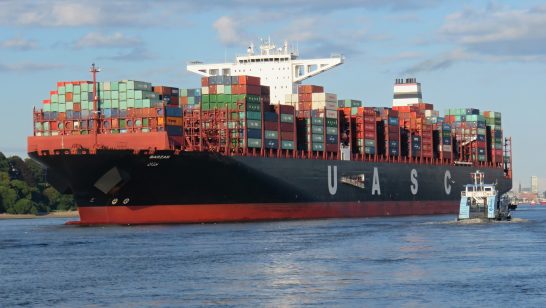
Between Brexit proceedings and a fractious relationship with Washington, Beijing will undoubtedly be adjusting its bilateral relations and reassessing the value of its partnerships with the UK, EU member states, and Brussels. Tough questions will be asked at the upcoming EU-China Summit on 9th April 2019.
To date, Europe has shown little interest in involving itself in the global power struggle between Beijing and Washington. The majority of European governments have taken a nuanced view on the China challenge; many have shared the US’ concerns over the direction of the Middle Kingdom under President Xi Jinping, particularly in relation to domestic market access and unfair competition from state-owned and state-backed companies. Yet internal divisions over China have long since troubled Europeans. Given a limited security interest in the Asia-Pacific, and large economic interest in China, many have feared the impact of the rise of China on international democratic governance norms and the rule of law.
In recent months, the EU has found itself under increased pressure from the US to comply with demands to treat the Huawei 5G network with caution, as many Western security services have warned that the Chinese state dominates and uses the economy, in part, to advance its own ends. In this reading, should Beijing wish to wage political espionage, Huawei is likely to be the most convenient and highly effective vessel to do so.
Ongoing controversies over other investments, such as the MIDEA Group’s acquisition of German robot maker, Kuka and in the UK’s civil nuclear plant, Hinkley Point C, have added more uncertainty to the Sino-European relationship. Despite this, China has remained clear on what it desires from the Chinese-EU relationship and has demonstrated as much in President Xi Jinping’s two recent trips to Europe in the past six months – Most of China’s “wants” are more about economics than security.
First, the European single market remains extremely attractive to Chinese companies and the government. In the eyes of many investors, the EU represents a secure home for their investments. In particular, a preferred partner for China’s ever-growing appetite for overseas asset acquisitions.
Second, Beijing has found itself fighting economic slowdown and an unexpected and enduring trade war with its most important economic and strategic partner, the United States. The two difficulties are intrinsically intertwined and, as a result, China is looking to build alliances with Western powers committed to the principles of free trade and globalisation, such as the European Union.
Third, Beijing is eager to be recognised by established economies and has high-hopes for European endorsement of its global ambitions, such as the Belt and Road Initiative, as recently demonstrated by Italy – a decision raising eyebrows in European capitals, as well as in Washington.
The EU has every reason to perceive China’s extensive investments with anxiety and a further source of pressure on the Union’s fragile unity. Many Chinese investments have a poor reputation: cash-loaded deals seen as concerted efforts by Beijing to achieve geopolitical ambitions rather than commercial gains to be made by Chinese individuals. Brussels, too, holds deep suspicions over China’s broader strategic calculation beyond its commercial gains. Many Europeans perceive Beijing’s “Made in China 2025” industrial upgrade initiative as posing a direct challenge to the EU’s own “Fourth Industrial Revolution.”
Judging by the increasingly strong rhetoric coming from Brussels and other European capitals, China’s might and money has spread more fear than it has admiration. This all too easily feeds into the narrative that many challenges faced by the EU are a direct result of China’s economic and geopolitical ambitions—and a threat to liberal democratic values that Europeans uphold. Beijing must realise it is vital to engage fully with EU member states, irrespective of size, on whose sovereign land their infrastructure systems are to be built. This includes conducting far wider international consultations on projects that are part of the ‘Belt and Road Initiative.’ Indeed, China must look for ‘wins’ which are not just China winning twice at its partners’ expense. Instead, it should make genuine attempts to create positive economic well-being in investment destinations, rather than treating partners as a vehicle to achieve their own ambitions. However, as is so often with Chinese foreign affairs, engagements with partners seem fundamentally rooted in a Sino-centric approach to the world: driven by inward-looking impulses and intended primarily to meet pressing domestic needs.
Growing Sino-phobia has often combined with the longstanding normative division between China and Europe. This divide has hindered the EU’s attempts to become a substantial diplomatic partner to Beijing. The EU’s engagement with China has drawn from its neighbourhood policy, in which the democratisation process, through political reform, re-integrated the formerly Communist East European states. This approach generates great suspicion in the Chinese public and political elites where it is viewed as a fundamental challenge to state stability, which is based on the Chinese Communist Party’s absolute legitimacy and governmental role. Europeans cannot afford to ignore the omnipresence of the Party, nor pretend that significant conceptual differences on democracy and political freedom do not exist. President Xi’s emphasis on the centrality of the Party in delivering economic reform and conducting foreign affairs surely disappoints free-market enthusiasts and democratic purists. He has not put the Middle Kingdom in a comfortable position with the West.
Much like China’s relations with all great powers, there is a substantial distance to travel between wishful thinking and reality. Politics is about the art of feasible. Capitalising on Europe’s strengths as a global champion of rulemaking, while preserving unity, is the best way to cooperate with China on common global challenges and against isolationist US foreign policy. However, to nurture a partnership with Beijing, Brussels and European capitals will have to balance its ideological divisions with realism about how much it can change the Chinese government’s outlook and political choices. For the upcoming summit, it is vital decision time for the European Union.
The opinions articulated above also do not necessarily reflect the position of the European Leadership Network or any of its members. The ELN’s aim is to encourage debates that will help develop Europe’s capacity to address pressing foreign, defence, and security challenge.



